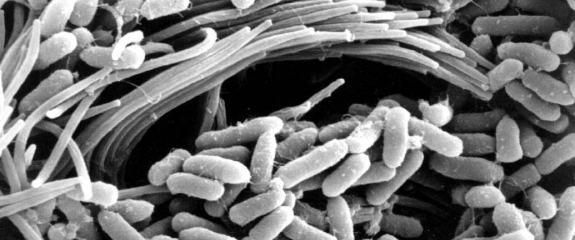Of mice and men (and pigs), a cystic fibrosis mystery solved

New research from the University of Iowa answers a question that has vexed cystic fibrosis (CF) researchers for almost 25 years: why don't mice with CF gene mutations develop the life-threatening lung disease that affects most people with CF?
Published Jan. 29 in the journal Science, the research led by Michael Welsh, M.D., provides an answer to this long-standing scientific puzzle, and in doing so, identifies a proton pump that may be a target for new CF therapies.
"Since the first CF mouse was reported in 1992, I have been asked hundreds of times, 'Why don't CF mice have respiratory host defense defects and develop lung infections?'" says Welsh, UI professor of internal medicine, molecular physiology and biophysics, a Howard Hughes Medical Institute Investigator, and Director of the Pappajohn Biomedical Institute.
In answering this question, Viral Shah, first author of the study and a student in the Medical Scientist Training Program at the UI Carver College of Medicine, homed in on the thin layer of liquid that covers the airways, i.e., the tracheal and bronchial passages. Shah and his colleagues specifically studied the liquid's acidity. The importance of acidity was revealed in earlier UI studies using CF pigs. That work showed that CF pigs have an abnormally acidic airway liquid, and that increased acidity impairs the ability of the airways to fight off infection.


